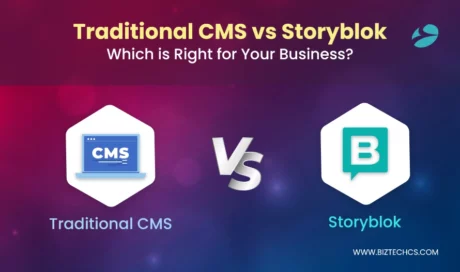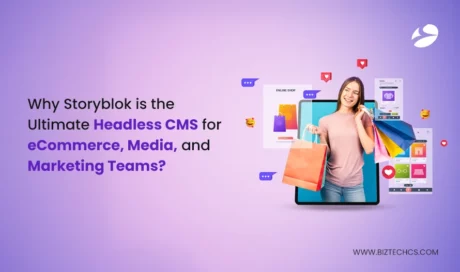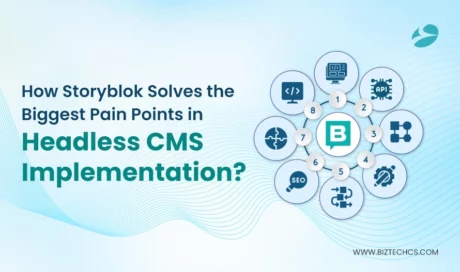
https://www.biztechcs.com/blog/pwa-vs-native/
Native Apps are fully in coordination with the terms of built-in functions and performance. These apps can be used offline which makes access faster. Though you need a bigger investment in the beginning, native applications keep us sorted for a longer term by offering a better user experience and are a standard across industries.
Progressive Web Apps are a hybrid between regular web pages and mobile applications which use modern Web capabilities to offer users a similar experience to a native app.
But, is this enough information to go with either of the technologies? Obviously not. If you are not familiar with either of the technologies, we have made a comparative analysis of both. You can use this to make an informed decision:
PWA Features
- It saves time and money as well and you can directly access it from the web browser.
- It uses a small portion of the device’s memory and is easily shareable with anyone with that small URL.
- It can be installed just like a native application on the home screen from Chrome and Opera and is also visible in Android settings. There is no store restriction.
- It supports multiple-platforms like Mobile and web (mainly Chromium-based browsers) both.
- PWA is SEO friendly as PWAs have URLs and are indexed by Google. Customers can easily find a PWA using a search engine.
- PWA update themselves automatically, therefore, apps stay fresh.
- It is cheaper, faster, and easier to develop as there is only one code base required.
Why Native is good over PWA?
- PWA uses secure URL with https but native applications will be more secure and reliable for accessing information.
- Native apps can interact with other native applications and fetch data, while PWAs can only allow sign in with other apps.
- As native code is still faster than HTML and JavaScript, Graphical Applications, HD games, intensive animation applications might perform well as native apps. WebGL standards help browsers and hybrid apps for gaming apps to meet performance but native has an edge.
- Native SDKs allow you to access the device sensors like Bluetooth, GPS, Wifi, Gyroscope, Accelerometer etc. whereas PWAs can only access basic sensors like GPS.
- User navigation is faster, smoother and more enjoyable.
- PWA doesn’t allow access or interaction with contacts, social profiles, browser bookmarks, and features like SMS. You can simply make a call if it has a contact number.
- PWA doesn’t work with low-level access to some hardware features and sensors: flashlight, atmospheric pressure sensor and registering to handle custom URL schemes and protocol, or file types.
- PWA has limited offline functionality and device resource utilization. Native is good for both online and offline.
- PWA provides decent security but not better than native. We can use a harsh word like worse here as you actually can not use PWA for banking and finance related applications as they need to be more secure.
- PWA is not battery optimized while native application’s optimization power is better.
- PWAs are not supported by all web browsers. Progressive web apps are Android-centric, and they don’t operate on Safari. Taking into account that Safari is the leading browser in the US with 51 percent of the market share, there’s a risk of losing a large mobile app audience if you only have a PWA.
- You can not use PWA if you are targeting functionalities like VR, AR.
- PWA can not be distributed through respective stores (App Store and Play Store). While it is a benefit that PWA does not follow the long process of app downloading like native applications, they do miss out on a large chunk of users who primarily search for apps on the respective stores (Appstore and Playstore).
Why native applications should be your first choice?
If we think in terms of accessibility and ownership by all types of audience then native applications give more satisfactory results than PWA.
Will Progressive Web Apps replace native apps?
We can say yes only partially as there are still limitations with PWA. Let’s consider some of these limitations:
- One of them is offline support. PWA works with browser cache for memory storage. So you can consider it for small applications but if you are targeting it for long term to run big projects, then cache limitations might come into the picture. It also leads to security issues that are more common with PWAs.
- One of the major things to consider with an app is the UI. Compared to a PWA, you have more liberty with a native app to manipulate the UI.
- As highlighted above, Native is paramount for mobile games and some gamification apps. If there are network latency issues, native is a better choice over PWAs.
- The main problem is the page load speed – developers are constrained by the browser’s speed and the quality of internet connection, whereas a native app directly uses device OS roots.
- In iOS 11.3 and macOS 10.11 or later (feature is in beta for later versions), you can use PWAs with Google Chrome. In this case, PWAs can send push notifications. iOS users will face problems like limited storage space and when they install a PWA on their home screen, the offline data will be stored for a maximum of two weeks, after which the cache will be cleared.
Conclusion:
- Although native apps cost more to develop and require a more time-consuming development process, to ensure the comfort and satisfaction of your customers, we recommend choosing a native mobile application for your E-commerce website.
- Native apps offer a more personalized experience, better performance, and exceptional user experience. With all these advantages, your online store will easily meet dynamic and growing demands that lead to higher conversion rates.
To make developing a native app easier, and less expensive, we have made an extension MageMob App Builder for Magento 2. It lets you bypass the complications of developing for two operating systems and other small frustrations. Your mobile app can be ready quickly and without any compromise. Check out its product page here.
You can get in touch with us here for any other query regarding mobile app development and this extension here.
3282
20 Feb, 2020
5 min read
3282
20 Feb, 2020
5 min read


13

936

2014